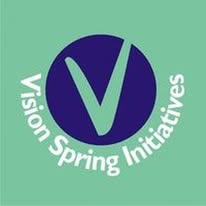In commemoration of Universal Health Coverage Declaration Day – December 12, 2023
By
Temitope Lawani
Program Officer Research and Education – Vision Spring Initiatives
Nigeria’s healthcare landscape has witnessed a series of changes, marked by persistent challenges that demand attention and reform. Among these challenges are poorly developed healthcare facilities, which hinder the provision of comprehensive and accessible services to the population. Additionally, there are concerns about the inadequacy and non-functionality of surveillance systems, crucial for early detection and response to health threats.
A significant gap lies in the absence of effective tracking and monitoring mechanisms for outbreaks of infectious diseases and chemical poisoning. The lack of a robust monitoring system poses a potential risk to public health, as timely intervention and containment become more challenging without accurate and real-time data.
Addressing these issues is pivotal to fortifying Nigeria’s healthcare system. By focusing on enhancing infrastructure, revitalizing surveillance systems, and establishing efficient tracking mechanisms, Nigeria can forge a more resilient and responsive healthcare framework, better equipped to safeguard the health and well-being of its diverse population.
The positive changes include The National Health Act 2014. The National Strategic Health Development Plan (2010-2015), The revised National Policy on Food and Nutrition 2016, ‘Ilera-Eko 2015’, National Health Policy 2017, and others which were all in the bid to improve health services and facilities in the country. The reasons why most of these policies do not function for a long time is because of political instability, corruption, limited institutional capacity, unstable economy, and numerous factors. Lagos state believes health is the fundamental resource needed for everyday life, which needs to be nurtured and supported by the government. To achieve this commitment, Lagos state has institutionalized a health system that promotes the delivery of quality, accessible, affordable, acceptable, equitable, and cost-efficient health services for the people of Lagos and its residents. One of the schemes established by the Lagos state government for the enjoyment of the residents of the state is the Lagos State Health Scheme (LSHS) which is a health insurance initiative of Lagos state Government. This is targeted at achieving universal health coverage for the growing population of Lagos state residents. This policy is backed by Law and seeks to bring Lagosians affordable health care services. In line with the above, the establishment of the Lagos Health Management Agency (LASHMA) occurred on 25th May 2015 so that Lagos state residents can access affordable, equitable, and quality Health care services.
The scheme was created to protect people living in Lagos from financial distress resulting from exorbitant medical bills. All these were tailored towards achieving the Universal Health Coverage goal and the Global Goal 2030 number 3 which is to ensure healthy lives and promote wellbeing for all at all ages. (Good health and well-being). The Lagos state health insurance scheme was made compulsory for all residents of the state regardless of their socio-economic status. Under the administration of Governor Babajide Sanwo Olu, the cost of registration for the scheme came at a different price which was N8,500 for an individual while the price for a family of six is 40,000 Naira. This policy attracted a lot of criticism as to the amount charged for this scheme. Some argued that the payment should be made in accordance with the earnings of each individual, and not the available general flat rate which is unfair for people whose earnings are N20,000 and below monthly.
In the year 2022, Ilera Eko was established for Lagos residents. The rates of payments are as follows: N8,500 for individuals per year, N40,000 for a family of six, seniors payment plans for age 60 and above (individual) is N34,000, and Seniors payment plans for couples aged 60 and above is N65,000. The payment can be made by the family in small installments.
Given the existing shortcomings within the current policies, Vision Spring Initiatives, as a non-governmental organization, advocates for a comprehensive reassessment of the health policy by the Lagos state government. This reassessment is crucial to address the identified gaps and to establish a framework characterized by flexibility, equality, and accessibility for all individuals. The call for a revisit underscores the commitment of Vision Spring Initiatives to contribute to the creation of a more inclusive and responsive health policy that meets the diverse needs of the residents of Lagos state.
REFERENCE:
https://Lagosstate.gov.ng>News
https://www.africannewspage.net>2016/06
https://punching.com>lagos-govt-mandate-health-insurance-for-residents/
